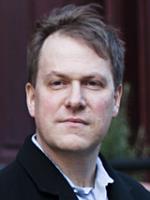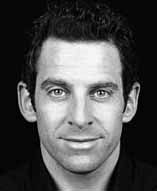 I always find it interesting when I believe a certain thing that seems at least a little obscure, only to find that there is a name for it. It isn’t that I think I’m that unusual. For example, most of what I think in terms of “spirituality” was laid out two centuries ago by Arthur Schopenhauer. I just add some of the science that we’ve learned since his time to come up with my own thinking that is somewhat distinct. I’m sure there are not that many people who have done the same. But it wouldn’t surprise me that there are enough such people to have a name like neoneuroschopenhauerites.
I always find it interesting when I believe a certain thing that seems at least a little obscure, only to find that there is a name for it. It isn’t that I think I’m that unusual. For example, most of what I think in terms of “spirituality” was laid out two centuries ago by Arthur Schopenhauer. I just add some of the science that we’ve learned since his time to come up with my own thinking that is somewhat distinct. I’m sure there are not that many people who have done the same. But it wouldn’t surprise me that there are enough such people to have a name like neoneuroschopenhauerites.
Earlier today, I was reading a devastating attack on Richard Dawkins’ new memoir by John Gray, The Closed Mind of Richard Dawkins. If you don’t much care for Dawkins, I recommend reading it. If you do care for him, you might stay away because you would not be wrong in thinking it is at least a bit unfair. But I’m not that interested in that. Gray actually spends a surprising amount of time not talking about Dawkins.
In the article, he mentioned, “For all his fervent enthusiasm for science, Dawkins shows very little interest in asking what scientific knowledge is or how it comes to be possible.” And so he provided a little primer on the philosophy of science:
That was very exciting for me. So it turns out that my philosophy of science is pragmatism. I had actually always thought that all people who thought at all seriously about science thought as I did. But I guess I’m wrong. This explains why otherwise smart scientists often say things that I think are totally indefensible. What I most have in mind is the confusion between theoretical scientific models and reality itself.
I most often run into this with quantum mechanics where people will claim that reality is stochastic. I generally respond with something like, “No, no, no! Our models of reality at the smallest level are stochastic; we have no idea what reality is!” And I still think that’s true. Most scientists are empiricists. It strikes me as a fairly simplistic understanding of science.
But then, I would think that, wouldn’t I? I am, after all, more a mystic and a mathematician than I am a scientist. I am deeply skeptical of reality — even to the point of having questions about my own existence. So I accept science like the guy in the chicken joke: I need the eggs.
But I’ve never felt that science answers fundamental questions. That’s not a knock against science, that’s just how science is constructed. For example, science generally answers “how” questions. Evolution theory shows how organic chemistry leads to life and eventually to us. Or if I were being more careful, I would say that evolution theory provides us with an extremely useful narrative about how organic chemistry leads to us. Regardless, science is mostly mute on the “why” questions. For example, why is it that carbon has this structure that allows complex chemical chains to be constructed? That’s not really even a scientific question. We can certainly learn that because of the makeup of subatomic particles after the big bang, it necessitated that atoms be constructed in a particular way and so on. But again, we are talking process (or “narrative”) not “Why?”
This is perhaps a critical element in my fights with the atheist community. It is empiricism versus pragmatism. Although I still don’t get how they can claim to be empiricists after Gödel. If sufficiently complicated deductive systems inevitably lead to contradictions, won’t science — an extremely complicated pseudo-deductive system — eventually tell us, for example, that atoms exist and that atoms don’t exist? It won’t matter to my philosophy of science. It will still be the case that in the reality of my consciousness, hummingbirds are territorial and the light still goes on when I flick the switch.
But what will it mean to those who think that reality is this thing and science uncovers its secrets? I remember reading The Limits of Science by Peter Medawar. In it, if I recall correctly, he said that there were no limits to science in the way that science had always been useful. I took this to mean that the knowledge that we had gained wasn’t going to reduce our ability to gain more knowledge of that type. At the same time, it meant that there had always been limits to science.
I don’t have a problem with this. What’s more, I don’t have a problem with limits to knowledge. And I certainly don’t have a problem with limits to rationality. And none of this has any effect on my philosophy of science.

 It is not necessarily a widespread fear of foreign or domestic threats — real or imagined — that compels the state to abridge civil liberties. When the government takes measures for the sake of security, it is not simply translating the people’s fear of danger into a repressive act of state. Instead, the government makes a choice: to focus on some threats and not others, and to take certain actions (but not others) to counter those threats. Merely think of the attention — and money, staff, countermeasures, and air time — the US government has lavished upon terrorism as opposed to automobile accidents or climate change, even in the wake of Katrina, Sandy, and a host of other life-threatening weather events…
It is not necessarily a widespread fear of foreign or domestic threats — real or imagined — that compels the state to abridge civil liberties. When the government takes measures for the sake of security, it is not simply translating the people’s fear of danger into a repressive act of state. Instead, the government makes a choice: to focus on some threats and not others, and to take certain actions (but not others) to counter those threats. Merely think of the attention — and money, staff, countermeasures, and air time — the US government has lavished upon terrorism as opposed to automobile accidents or climate change, even in the wake of Katrina, Sandy, and a host of other life-threatening weather events… Ever since I responded to Martin Wolf,
Ever since I responded to Martin Wolf,  Recently, I wrote,
Recently, I wrote,  There is also a path from atheism to libertarianism. In the atheist community, there is an extremely common belief that their opinions are based upon reason. They don’t believe in God because there is no evidence for it. I have to say that I’ve never found this a compelling argument. I know only too well that there are lots of things I take on faith. (For the record, I am an atheist because I find God to be a useless concept — a non-answer to a question I care deeply about.) Libertarianism is usually pitched as a kind of “first principles” theory. It is thought to be rational when the best thing you can say for it is that it is vaguely internally consistent.
There is also a path from atheism to libertarianism. In the atheist community, there is an extremely common belief that their opinions are based upon reason. They don’t believe in God because there is no evidence for it. I have to say that I’ve never found this a compelling argument. I know only too well that there are lots of things I take on faith. (For the record, I am an atheist because I find God to be a useless concept — a non-answer to a question I care deeply about.) Libertarianism is usually pitched as a kind of “first principles” theory. It is thought to be rational when the best thing you can say for it is that it is vaguely internally consistent. On this day in 1872, the women’s right activist
On this day in 1872, the women’s right activist